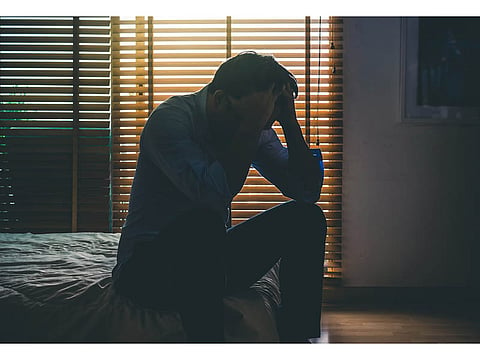THURSDAY, April 15, 2021 (HealthDay News) -- The magic ingredient in "magic mushrooms" may be at least as effective as standard medication for depression, an early clinical trial suggests.
The study of 59 patients with major depression tested the antidepressant escitalopram (Lexapro) against psilocybin, which is the psychedelic substance in hallucinogenic mushrooms.
Over six weeks, it appeared that just two doses of psilocybin were at least as effective as daily escitalopram pills, both of which were given along with psychological counseling.
Patients on either treatment improved to a similar degree in their scores on a depression rating scale.
But psilocybin patients actually fared better by other measures: By week six, twice as many were in remission compared to the antidepressant group.
The researchers called the findings "encouraging," but stressed that more work is needed to figure out where psilocybin might stand as a depression therapy.
They also discouraged people from self-medicating with magic mushrooms.
"It is our strong belief that psilocybin therapy only works as a combination treatment," said lead researcher Robin Carhart-Harris, head of the Centre for Psychedelic Research at Imperial College London, in the United Kingdom. "It's not the same thing if you only take the drug and do not receive any professional psychotherapy alongside it."
He and his colleagues published their findings in the April 15 issue of the New England Journal of Medicine.
Magic mushrooms have long been used recreationally as hallucinogens, meaning they alter people's perceptions of their surroundings, and their thoughts and feelings. That could end badly; for example, if users think they can fly.
Medical research into psychedelics like psilocybin and LSD began in the 1950s, and then famously ended after a surge in recreational use by the 1960s "counterculture."
But recent years have seen renewed interest in psilocybin as therapy. In the United States, researchers at institutions like New York University, the University of California and Johns Hopkins University are studying psilocybin-assisted therapy for eating disorders, addiction and depression.
Matthew Johnson is associate director of Johns Hopkins' Center for Psychedelic and Consciousness Research, in Baltimore.
In their research, Johnson and his colleagues found that one dose of psilocybin, combined with psychological therapy, produced "very large" and lasting reductions in cancer patients' depression and anxiety symptoms.
Johnson said researchers have a "very good understanding" of psilocybin's immediate impact on the brain: Its psychedelic effects come from stimulation of particular receptors for the chemical serotonin, which helps regulate mood.
Common antidepressants, including escitalopram, work by increasing serotonin activity in the brain. But those drugs have to be taken every day, Johnson pointed out.
What's unclear, he said, is why psilocybin has such lasting effects on depression symptoms.
On a broad level, the psychedelic is thought to facilitate the psychotherapy component of depression treatment. "But we need more studies to really dig into it," Johnson said.
The trial by Carhart-Harris and his team included 59 patients with depression -- mostly in the moderate-to-severe range -- who were randomly assigned to one of two groups. In one, patients received two doses of psilocybin, given three weeks apart under the guidance of a mental health professional. They also took placebo (inactive) capsules at home each day.
The other group took escitalopram capsules every day and received a placebo instead of psilocybin during the office visits.
All patients received psychological counseling.
After six weeks, the two groups showed similar reductions in their average scores on a measure of depression symptoms. In other ways, though, the psilocybin group fared better: At week six, 57% had depression scores so low they were considered to be in remission. That compared with 28% of antidepressant patients.
They also showed greater improvements in measures of general well-being, social functioning and the "ability to feel pleasure," Carhart-Harris said.
As far as side effects, he said, psilocybin "appears favorable." Most often, patients had a headache within 24 hours of their dose.
With escitalopram, the most common problems were headache, nausea and fatigue.
"The beauty of psychedelics," Johnson said, "is that the side effects are on that day, when patients are under our care."
He agreed that people with depression should not attempt to self-treat because the counseling component is key, and because mushrooms carry risks.
"Some people do have 'bad trips' where they harm themselves," Johnson said.
More studies are needed to figure out how often, and for how long, patients might need psilocybin to manage depression, according to Johnson.
But both he and Carhart-Harris said they could foresee the psychedelic as an alternative to standard antidepressants for people who are interested.
"It won't be for everyone," Johnson said. "But we want more options for depression, not fewer."
More information
The National Alliance on Mental Illness has more on depression treatment.
SOURCES: Robin Carhart-Harris, PhD, head, Centre for Psychedelic Research, Imperial College London, United Kingdom; Matthew Johnson, PhD, professor, psychiatry, and associate director, Center for Psychedelic and Consciousness Research, Johns Hopkins University School of Medicine, Baltimore; New England Journal of Medicine, April 15, 2021


